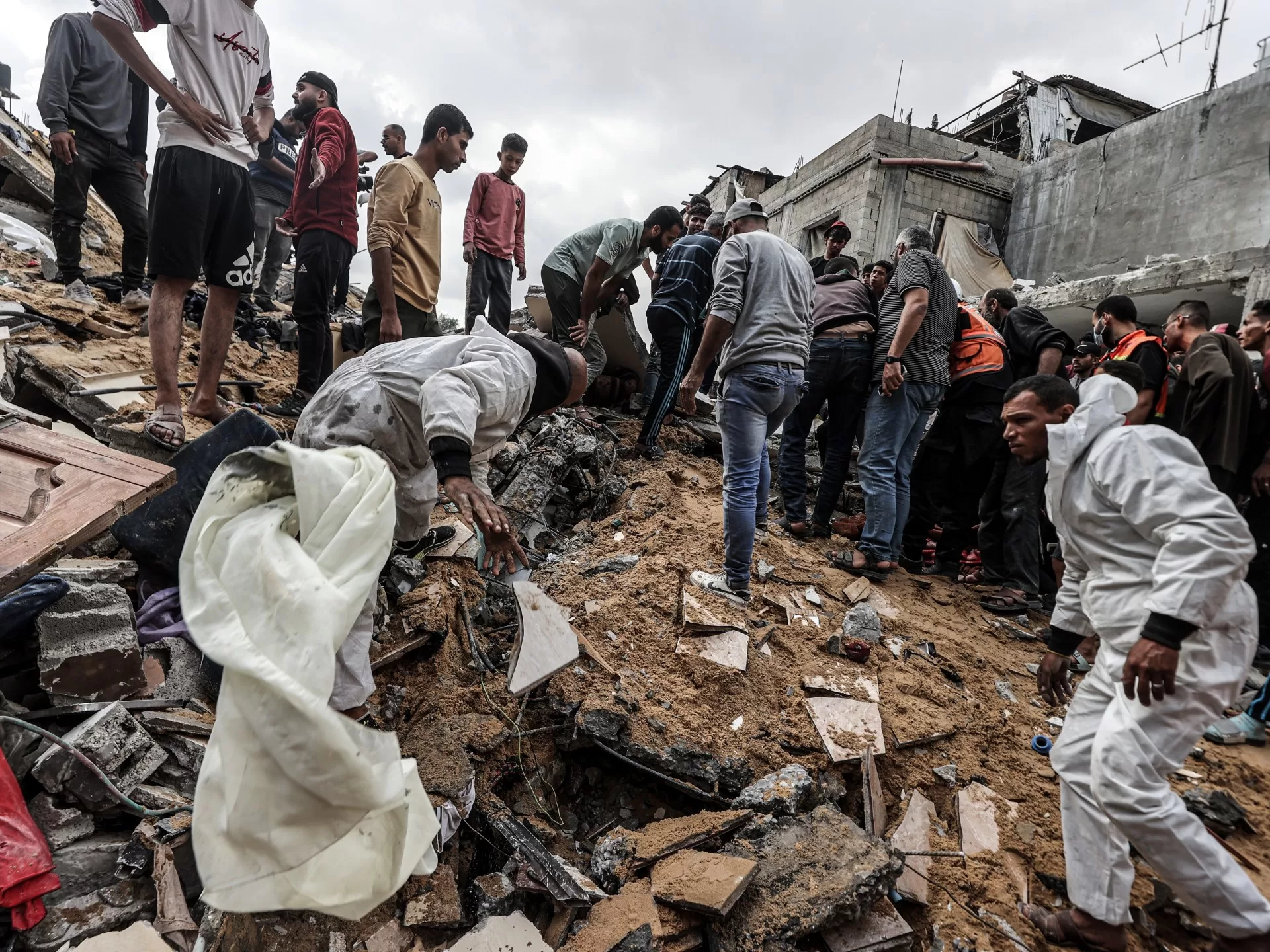In the Nuseirat refugee camp in central Gaza, Israeli warplanes struck a home on Tuesday, killing at least 14 Palestinians, including children, the official Palestinian news agency WAFA reported.
The Israeli military ordered more residents to evacuate in parts of the north, where battles between Israeli soldiers and Hamas fighters have resumed in recent days after Israel sent troops back into the area, months after claiming it had defeated Hamas there.
Israeli tanks, bulldozers and armoured vehicles surrounded evacuation zones and shelters in the Jabalia refugee camp, the north’s largest refugee camp, now largely destroyed.
Fierce gun battles were continuing late on Tuesday in the camp.
In Rafah, which borders Egypt, Palestinian residents on Tuesday said they could see smoke billowing above eastern districts of the city and heard explosions after Israel bombarded a cluster of houses.
Hamas’ armed wing, the Qassam Brigades, said it had destroyed an Israeli troop carrier with an Al-Yassin 105 missile in the eastern as-Salam district, killing some crew members and wounding others.
There was no immediate comment from the Israeli military.
The UN says more than half a million Palestinians have been displaced in recent days by escalating Israeli military operations in both southern and northern Gaza.
Evacuation orders in the north have displaced at least 100,000 people so far, UN deputy spokesperson Farhan Haq told reporters on Monday.
In Gaza’s southern city of Rafah, where a widely criticised Israeli ground operation is under way, an estimated 450,000 Palestinians have been driven out of the city over the past week, according to the UN agency for Palestinian refugees (UNRWA).
More than 1.5 million displaced Palestinians had sought shelter in the southern-most city of Rafah, after they were forced to flee their homes in other parts of Gaza that had come under intense Israeli bombardment since October.
UN chief ‘appalled’ at Rafah operation
UN chief Antonio Guterres is “appalled” by Israel’s escalating military activity in and around Rafah, his spokesman said.
“Civilians must be respected and protected at all times, in Rafah and elsewhere in Gaza. For people in Gaza, nowhere is safe now,” Stephane Dujarric said, adding that Guterres again called for an immediate humanitarian ceasefire.
The forced expulsion of Palestinians has made it increasingly difficult for aid workers to distribute decreasing supplies of aid to families facing catastrophic levels of hunger in makeshift tent camps.
Israeli forces are continuing to bar the entry of humanitarian supplies via the Rafah border crossing with Egypt after its forces seized the Palestinian side on May 7.
Scarce amounts of aid used to enter the Strip via the crossing since October 7.
Israeli Foreign Minister Israel Katz said Egypt must be “persuaded” to reopen the Rafah border crossing to “allow the continued delivery of international humanitarian aid” into Gaza.
His comment prompted an angry response from Egypt’s Foreign Minister Sameh Shoukry who said in a statement that Israel’s seizure of the Rafah crossing and its military operations in the area were the main obstacles to aid entering Gaza.
Seven months of Israeli bombardment and ground assaults in Gaza have killed more than 35,000 people, most of them women and children, according to Palestinian health officials.
The Palestinian Authority announced on Tuesday that 80 percent of Gaza’s health centres are currently out of service.
Gaza’s civil defence says with a severe lack of adequate vehicles and equipment, it is becoming increasingly difficult for its teams to carry out their jobs, including pulling “thousands” of bodies from under the rubble.
Without these tools, it estimated that it would take approximately six years to recover the bodies of slain Palestinians that remain under the widespread debris and destruction.
